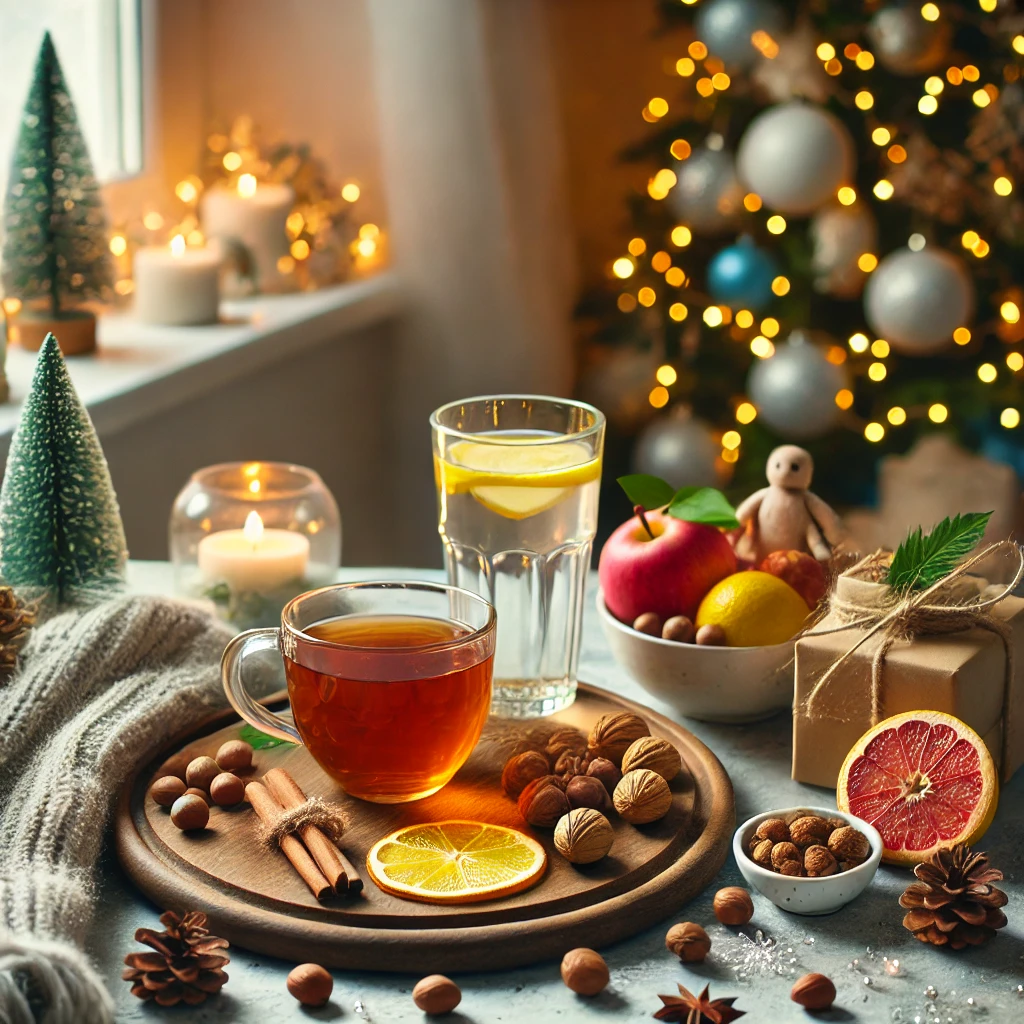The holiday season is upon us, and with it comes the temptation to indulge in festive celebrations and raise a glass of cheer. However, excessive alcohol consumption can often lead to unpleasant after-effects, such as hangovers. If you want to enjoy the Christmas festivities without paying the price the next day, we have compiled a list of helpful tips to minimise hangovers and even explore strategies to stop drinking altogether. Whether you’re looking to moderate your alcohol intake or take a break from alcohol entirely, this guide will provide you with practical advice to navigate the holiday season with ease.
Understanding the Effects of Alcohol
Before we delve into the tips and strategies, it’s a good idea to understand how alcohol affects our bodies. Alcohol is processed by the liver which converts it into substances that can be toxic when consumed in excess. These substances can damage the lining of the gut, deplete essential nutrients and leave us dehydrated, leading to the dreaded hangover. In addition, too much alcohol can have long-term health consequences, including increased risk of cancer, liver disease and mental health issues. With this in mind, let’s explore ways to minimize hangovers and make healthier choices during the Christmas season.
Tips to Minimise Hangovers at Christmas
1. Stay Hydrated
One of the most important steps to prevent a hangover is to stay hydrated. Alcohol is a diuretic, meaning it dehydrates the body, which can contribute to the severity of hangover symptoms. Throughout the day, make sure to drink plenty of water, herbal teas and diluted juices. By maintaining hydration levels, you can help counteract the dehydrating effects of alcohol and reduce the intensity of hangovers.
2. Avoid Drinking on an Empty Stomach
Drinking alcohol on an empty stomach can increase the rate at which it is absorbed into the bloodstream, leading to a more rapid and intense intoxication. To minimize the negative effects of alcohol, be sure to have a meal or snack before drinking. Having food in your stomach can help slow down the absorption of alcohol and protect the lining of your gut from irritation. Consider consuming a spoonful of olive oil or fatty foods to further slow down alcohol absorption.
3. Choose Lighter-Coloured Beverages
There is some evidence to suggest that dark liquors, such as whiskey and red wine, may contribute to more severe hangovers due to their higher levels of congeners – substances produced during fermentation that can have toxic effects. Opting for lighter-coloured beverages such as clear spirits or white wine, may help minimise the intensity of hangovers. However, it’s important to note that individual tolerance and susceptibility to hangovers varies.
4. Pace Yourself and Alternate Drinks
To prevent excessive alcohol consumption, it’s essential to pace yourself and alternate alcoholic beverages with non-alcoholic options. Set a limit for the number of drinks you’ll have throughout the evening and stick to it. Alternating between alcoholic drinks and glasses of water or club soda can help reduce your overall alcohol intake and keep you hydrated. Additionally, this practice can help slow down alcohol consumption and potentially lessen the severity of hangovers.
5. Consider Alcohol-Free Alternatives
If you’re looking to lower alcohol consumption or take a break from drinking altogether, consider exploring alcohol-free alternatives. There are numerous non-alcoholic beers, wines and cocktails available that provide the same social and sensory experience without the alcohol content. Opting for these alternatives can help you feel included in the festivities while avoiding the negative effects of alcohol.
6. Know Your Triggers and Plan Ahead
Understanding your personal triggers for excessive drinking can help you manage your alcohol consumption more effectively. Reflect on the situations, emotions, or people that may lead you to drink excessively and develop strategies to avoid or navigate these triggers. Consider talking to a trusted friend, your GP, or seeking support from trained professionals if you need guidance in addressing and managing these triggers effectively.
7. Set Realistic Expectations for Yourself
During the holiday season, it’s common to feel pressure to drink excessively and participate in every social gathering. However, it’s important to set realistic expectations for yourself and prioritize your well-being. Remember that it’s okay to decline invitations or limit your alcohol intake to ensure you feel your best. Focus on quality time with loved ones, engaging in activities you enjoy, and creating meaningful memories that don’t revolve solely around alcohol.
Strategies to Stop Drinking In The New Year
While minimising alcohol consumption is a common goal, some individuals may aspire to stop drinking altogether. If you’re considering taking a break from alcohol or pursuing a sober lifestyle, the following strategies can support your journey:
1. Communicate Your Intentions
Inform your friends, family and colleagues about your decision to stop drinking. This will help create an environment that encourages your sobriety and reduces the pressure to drink.
2. Find Alcohol-Free Activities
Explore alternative activities that don’t revolve around alcohol. Engage in hobbies, join clubs or groups that align with your interests, and plan social outings centred around non-alcoholic experiences. This will help shift your focus away from alcohol and provide opportunities for personal growth and connection.
3. Seek Support
If you’re finding it challenging to stop drinking on your own, seek support from various sources. Reach out to friends, family members or support groups who can provide guidance, encouragement, and accountability. Professional alcohol counselling and therapy may also be beneficial in addressing any underlying issues related to alcohol consumption.
4. Create a Supportive Environment
Make changes to your immediate environment that support your decision to stop drinking. Remove alcohol from your home, avoid places that trigger cravings, and surround yourself with individuals who respect and support your sobriety.
5. Establish Healthy Coping Mechanisms
Develop healthy coping mechanisms to replace the role that alcohol once played in your life. Engage in regular exercise, practice mindfulness or meditation, pursue creative outlets and find ways to manage stress effectively. These activities can provide a sense of fulfilment and help manage any cravings or triggers that may arise.
Good Luck and Have Healthy Festivities!
As the Christmas season approaches, it’s important to be mindful of our alcohol consumption and take steps to minimise the negative effects of excessive drinking. Whether you’re aiming to minimise hangovers or make a more significant change by stopping drinking altogether, the tips and strategies outlined in this article can help you navigate the holiday season with ease. Remember, your well-being is a priority, and making conscious choices around alcohol can contribute to a healthier and more enjoyable festive experience. Cheers to a responsible and fulfilling holiday season!



